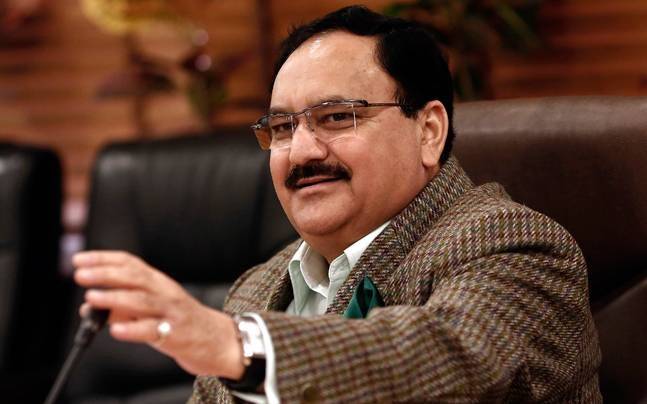The ruling BJP is formally changing its head. While a nomination process will be gone through Monday, how it will end is a foregone conclusion. JP Nadda, functioning as working president for the past few months under the tutelage of the party chief, is all set to step into Amit Shah’s shoes as party president. Notably, no generational change is involved in this, and what could also be surmised with certainty is the party will continue to be led on the whims of three entities with varying degrees of influence over the organisation – namely, Prime Minister Modi, Home Minister Shah and the RSS.
Since the Goa conclave of the party that nominated Narendra Modi as PM nominee for then approaching 2014 parliament elections, the BJP had a good time. While Modi’s theatrics on the campaign front helped the party win the polls, the groundwork as also brain power supposedly came from the RSS.
After riding the BJP to victory and becoming PM, one of the first acts of Modi was to crown Shah, his right-hand man from Gujarat, as the party chief. RSS was obviously game for this, though it had other names too in the reckoning. From then on, the party won several elections, and lost rarely as in the case of Delhi, Bihar and West Bengal and later Punjab, too. Still, it was largely a winning streak for successive assembly polls till May 2018 Karnataka polls came, wherein the regional JDS and the Congress managed to upstage the BJP. Chhattisgarh, Madhya Pradesh and Rajasthan went the Congress way, reversing the pro-BJP trend.
Even as the party returned to power in the 2019 LS polls, the successive assembly polls put the BJP in a spot yet again; it not only lost Maharashtra polls but also took a severe beating on its credibility and anti corruption image when it immediately nullified the corruption cases against its temporary ally Ajit Pawar.
The BJP managed to retain power in Haryana with the help of a fledgeling pro-Jat regional party, again by losing face when it released the tainted Chautala from prison. Later it lost Jharkhand, too. A bigger shock might be coming for the party in Delhi assembly polls a month hence. Winning or losing elections is what makes or mars the prestige of a party. There is no party if there is no poll victory.
If credit goes to Shah for the party’s winning streak after the 2014 LS polls by organisationally equipping the party for victories, and envisioning a Congress-mukt Bharat, the reverse that is witnessed in recent times might mean a failure of Shah to measure up to expectations and keep the party fighting fit. This, thus, is time for him to hand over the job to a new face. JP Nadda, too, is a strong RSS hand, who worked alongside Shah and others at the organisational level in the past. It could be time for him to prove his strengths on that front now.
Clearly, handling the home portfolio and running the party was too much of a burden for Shah. The victories attributed to his capabilities may not be his at all. It was clear to all and sundry that the common citizen of this country wanted a change from the decade-old corrupt and inefficient Manmohan Singh government. The change took place when people rose against the Congress.
Success has many fathers, and failure is an orphan. Whether Delhi is won by AAP or BJP may be a matter of discussion for some time. The truth, however, is that people at large have measured the abilities of Modi and his team. It is evident that the RSS may have pockets of influence. The disastrous defeat of the BJP in the Nagpur Zilla Parishad polls recently is an indication that the RSS is incapable of swinging opinions of people in general. It is not a vote catching machinery.
The 5 August 2019 abrogation of Article 370 and the new fronts opened by the BJP like the CAA, NRC and NPR could be straining Shah’s and PM Modi’s nerves further.
While it may be said that the BJP lost several states it ruled due to anti-incumbency and the Congress emerged from the sidelines to wield power again, it is the regional parties that are holding out nevertheless. Even in recent polls, Maharashtra saw the Shiv Sena leading the new government in association with another regional party, the NCP; and the Congress as a third ally. In Jharkhand, too, the JMM outwitted both the BJP and the Congress and emerged on top. So with the southern states, as also Orissa and West Bengal, where regional parties are not yielding space to the BJP and the Congress.
Under the circumstances, the new BJP president will have a huge task ahead, in association with the PM and the RSS, to organisationally strengthen the party and help it win future polls — at a time when the Saffron aura is clearly diminishing and Modi’s governance capacities have been put in serious doubt, the future seems bleak for the BJP. It may be a possibility that Amit Shah has seen the impending doom and has cleverly moved out at the appropriate time.
